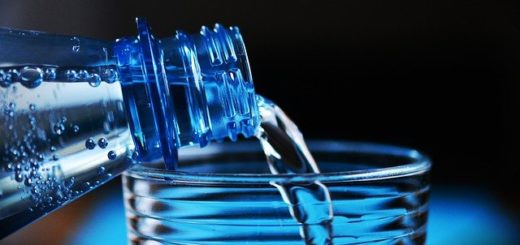Establishment of 2 agroforestry tree and fruit seedling Nurseries in Ndaragwa and Oljororok sub-counties, Nyandarua County In Kenya
About Solidaridad
Solidaridad Network is an international solution-oriented civil society organization working through eight regional expertise centers to transform markets to make them more sustainable and inclusive. Our eight regional expertise centers include Asia, Eastern and Central Africa, Europe, Latin America, North America, Southern Africa, South America, West Africa and our global Secretariat in the Netherlands. Solidaridad Eastern and Central Africa, one of the regional centers, headquartered in Nairobi, Kenya with country offices and programmes in Democratic Republic of Congo, Ethiopia, Tanzania, and Uganda. We bring together supply chain players and engage them with innovative solutions to improve production, ensuring the transition to a sustainable and inclusive economy that maximizes the benefit for all. We facilitate the strengthening of local capacity in developing countries, support the creation of enabling environments for economies to thrive, and improve market access.
For more information, please refer to http://www.solidaridadnetwork.org
The Shade for Vegetables Project (SAVE)
The Shade for Vegetables Project (SAVE) is a 6-year project targeting smallholder horticulture farmers in Nyandarua county in Kenya. The goal is to restore 250 ha of degraded catchments of Oljororok and Ndaragwa in Kenya using an agroforestry system. The funding will specifically be used to leverage 2,000 small-scale farmers in Nyandarua county to integrate 160,000 trees in vegetable farming systems adjacent to the catchment and broader watershed.
The long-term impact is a productive, multifunctional landscape that will allow communities to benefit from the ecosystem. The medium to long-term benefits include higher crop yields, increased income, and increased resilience to climate change.
Background
The Ewaso Narok sub-catchment ((0°19’19.81” N, 36°35’39.28” E) which lies in the Ewaso Narok sub-catchment within the larger Ewaso Ngiro North Catchment Area (ENNCA) is the largest multi-use wetland in Laikipia County providing water regulation, flood control and water purification ecosystem services for the livelihood of both Farmers and Pastoralists. The sub catchment has a total area of 1,840 Km2 with a combined human population of 80,741 (male 40,689, female 40,052, GoK/KNBS 2019).
The larger landscape has experienced massive tree cover reduction from illegal logging, charcoal burning, agricultural encroachment, fuel wood vendors and wildlife poaching within the South Marmanet and Rumuruti forests reserve. These activities have reduced the biodiversity of the Ol Bolosat (Ma Nguu Wetlands), Thompson Falls and Ewaso Narok Sub catchment since the drainage system forming Ewaso Narok swamp originates from the Nyandarua ranges and the Lake Ol’Bolossat catchment. The degraded watershed reduces the ecological functions performed by these ecosystems, which has implications in the entire Ewaso Nyiro basin.
Specifically, the Ewaso Narok Swamp Integrated Management Plan 2022-2032 notes that flooding is more frequent and severe with relatively high discharge rates and this has been largely attributed to anthropogenic influence at the catchment scale. People tend to move to higher grounds during the wet season because they are afraid of the damage caused by floods. However, when the flooding recedes in the dry season, both the farmers and pastoralists move into the riparian reserves for farming and grazing. The plan further notes that approximately 30,000 people farm in the sub-catchment both commercial and subsistence resulting in the draining of the swamp to provide more area for cultivation of the plots surrounding the swamp. If left unchecked, the report notes, this will lead to ultimate disappearance of the catchment in near future.
The destruction of natural ecosystems along the catchment to pave way for crop and grazing land coupled with introduction of exotic trees such as Eucalyptus spp and farming along the riparian zone have destroyed macro fungi microclimate and caused loss of degradable woody and litter substrate responsible for generating diversified microclimates (Waldrop et al., 2006).Additionally the number of invasive weedy species has increased in the last decade due to the ongoing destruction of the natural vegetation around the catchment. Increasingly poor water quality has reduced the number of mayflies and caddisflies and increased the diversity of dipterans, oligochaetes, and decapods (Terer et al 2021).
As our intervention under the SAVE project is around the promotion of agroforestry systems, it is important to mention that over 90% of the people living within and around the sub catchment depend on wood fuel and charcoal for their energy needs. Sources of fuel wood include Narok forest (28%); unsettled land (28%); ranches (21%) and on farms (14%) (Kiteme & Thenya, 2011).
Deforestation and unsustainable agricultural practices upstream and around the sub-catchment has not only increased the severity of the flooding but distorted the sub-catchments ability to store and release water and contributed to massive pollution of water resources. This change continues to undoubtedly have negative ecological impacts on aquatic communities and disrupt the seasonal calendar of farmers and cause massive loss of food crops.
Assignment Objective:
The objective of the assignment includes:
The objective of this assignment is guided by the impacts of climate change that are already widespread and the consequences have been witnessed all around the world. Any fluctuations in temperature, rainfall, humidity, soil nutrients, moisture, sunlight, aeration and soil temperature have a direct impact on the growth and productivity of crops and plants. Hence, adaptation of mitigation strategies involving actions to reduce global warming is an important option to overcome the impact of climate variations on horticulture production. In this regard, the SAVE project is promoting agroforestry within the farmlands and seeks to construct and establish fruit and agroforestry seedlings nurseries measuring 20m*20m in the proposed project sites in order to realize the desired outcomes and impact of propagating 160,000 agroforestry seedlings.
This TOR aims to install 2 new modern shade net fruit, and tree seedlings nurseries, and installation of irrigation systems that are customized for the nurseries.
Responsibilities of the Service Provider /Scope of Work:
The service provider will be primarily responsible for:
- Set up 2 shade net seedling nurseries to the satisfaction of Solidaridad across the 2 sub-counties in a period of 1 month and as per specifications provided in Annex A below.
- Install Irrigation systems in each nursery that are customized for nursery.
- Train and support the beneficiaries on all the good practices, innovations and climate smart technologies being promoted as well as management of the shade net nursery during the establishment phase.
- Provide the training module for the shade net nursery to the beneficiaries on the practices that will be carried out in the hardwares post-construction and establishment.
- Carry out 2 follow-up and monitoring visits for each shade net Nursery, in the subsequent 3 months’ post set-up for assessment on seedlings set up.
- Be willing to create employment(casuals) for the project beneficiaries, where possible
- Submit a final report compiled version of the report in electronic version in word format to the project after incorporating the feedback and suggestions from Solidaridad.
Coordination and Cooperation
- The Consultant undertaking the assignment will work under the coordination of Solidaridad (ECA).
- Solidaridad will source seeds and inputs used for planting in each nursery.
Expert/Consultant’s
Develop a comprehensive expression of interest (E.O.I) outlining:
- A short profile of the firm/consultant, including photos of previous work.
- Firm/Consultants statement on the interpretation of the TOR, methodology of execution, work plan and budget.
- A detailed work plan for the work.
- A detailed diagrammatic layout and designs for the nursery and drip irrigation
- At least a reference of similar assignments undertaken in the last 3 years
- It is desirable if the consultant/firm has previous experience in setting up and managing nurseries and drip irrigation systems.
Submission deadline
The consultant is required to submit the E.O.I detailing the approach & methodology, budget and work plan by the 22nd of March 2024.
Installation Period:
The overall time frame of the activity installation will be 30 days (including Saturdays and Sundays), which will include the approach and methodology, construction and establishment of the hardware and presentation of the final completion report.
Subject reference: Establishment of 2 agroforestry tree and fruit seedling Nurseries in Ndaragwa and Oljororok, Nyandarua County, Kenya in Solidaridad East and Central Africa
Submissions are by email to procurement.eca@solidaridadnetwork.orgwhileaddressed to:
Regional Managing Director
Solidaridad Eastern and Central Africa Expertise Centre
Kilimani Business Centre, Kirichwa Road,
P.O. Box 42234 – 00100 GPO
Nairobi
ANNEX A: HARDWARE SPECIFICATIONS
- Shade Net Nurseries
- Fabrication of the metallic structure of 20m by 20m with 1½ galvanized square tubes.
- One lockable door designed with a disinfectant foot path.
- Profile clips to fasten the shade net.
- 70-75% shading UV treated mono filament material shade net.
- 50kgs Growing media- treated coco peat, peat moss.
- 150,000 Eco biodegradable Planting seedling bags (50,000 bags of,6*9′ and 100,000 bags of 7*12′ inches; non-woven material, 35gsm)
- 2000 Liters plastic water tank with metallic raised stand and a tank protection roof.
- Installed controlled drip irrigation systems, each nursery with 20 high pressure micro-sprinklers with metallic stands.








